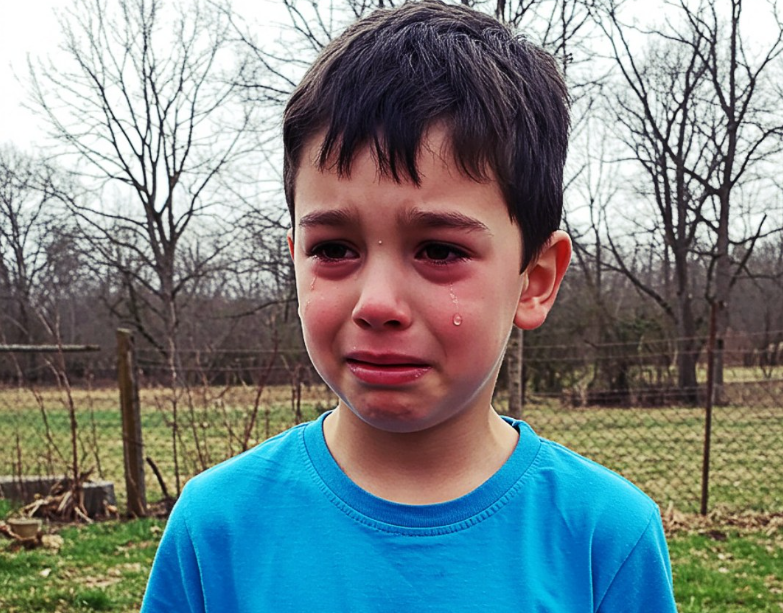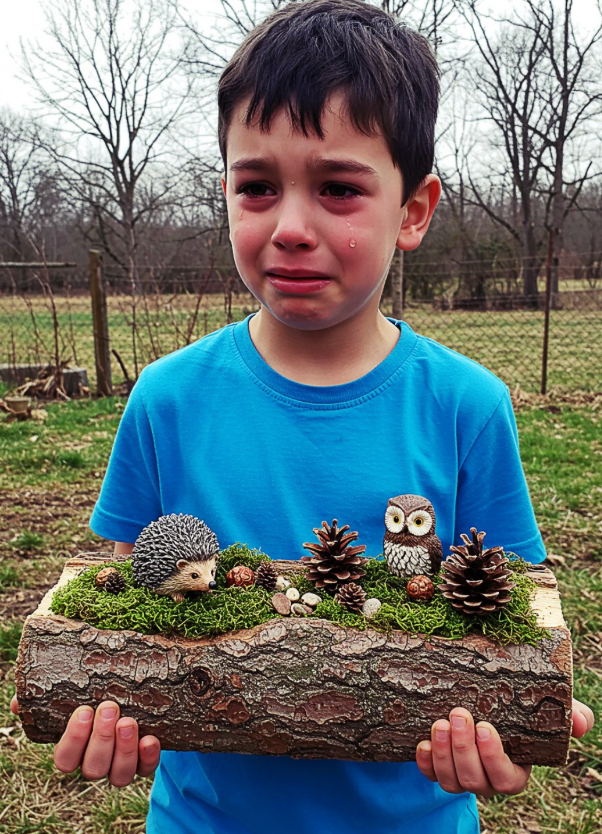A Story About Heart, Hope, and the Power of Kindness

He Just Wanted to Share His Imagination
A Story About Heart, Hope, and the Power of Kindness
This is Oliver.
He’s nine years old. A quiet, curious little boy with a big heart and an even bigger imagination. While other kids might spend their afternoons glued to video games or chasing trends, Oliver was out in the woods behind his house — a place that, to him, was not just nature, but magic. He spent hours walking under the trees, collecting things most of us would probably step over without a second thought: pinecones, tufts of moss, tiny acorns, pebbles shaped like hearts, little bits of bark. But to Oliver, these weren’t just scraps from the forest floor — they were treasures. Ingredients. Pieces of a world he was carefully building in his mind.

For days, Oliver worked on what would become his masterpiece: a diorama tucked inside a hollowed-out log, which he called “The Quiet Forest.” He spent every spare minute shaping it. He carefully arranged every bit of moss like a lush carpet. He added miniature wooden ladders, tiny furniture, and placed little animal figurines — owls, squirrels, foxes — all hand-painted with his tiny fingers. He used twigs to build a treehouse no bigger than a teacup and filled the log with warm, glowing LED lights. He didn’t have the fanciest materials or any help from grown-ups. All he had was his vision — and his heart.
In his mind, The Quiet Forest was a peaceful world where animals lived in harmony. There was no cruelty there, no one laughed at your dreams. It was a place where stories bloomed like wildflowers and where even the smallest voice could be heard. A place that reminded him of what it should feel like to be a kid: free, safe, understood.

When the school announced a “Creative Projects Day,” Oliver knew exactly what he wanted to share. He gently packed his forest into a shoebox lined with soft cloth and brought it to school, filled with hope. He wasn’t looking to win a prize or be the center of attention. All he wanted was for someone to see what he saw — to look into that tiny world and smile. To feel the magic, even just a little.
But that’s not what happened.
Instead, some classmates laughed. They called it “baby stuff.” One even said it looked like “trash.” They didn’t ask questions. They didn’t look closer. They didn’t see the hours of work, the late nights spent whispering to himself about where the owl should perch, or how the moss should glow like it was lit by moonlight. They didn’t see the boy who had poured his soul into something beautiful.
They just saw something different. And they mocked it.

When Oliver got home, he didn’t throw his project away — but he couldn’t look at it either. He cried quietly, curled up in bed. Not because they didn’t like his creation — he could have handled that. But because they didn’t try to understand it. Because something he loved was turned into something to be ashamed of.
But here’s the thing.
Creativity — real creativity — isn’t always loud. It doesn’t always wear glitter or get applause. Sometimes, it’s quiet and soft, like moss on a stone. Sometimes, it lives in the heart of a small boy who dares to imagine a better world inside a log.
Oliver’s project wasn’t “baby stuff.” It was the essence of what art is supposed to be: personal, meaningful, and brave. It was a piece of himself, shared without fear, until the world made him question it.

But that stops now.
We can’t go back in time and stop those kids from laughing. But we can do something powerful right here, right now: we can choose to see Oliver. Really see him — the artist, the dreamer, the storyteller. We can choose kindness. We can say: “We love what you made. We believe in your forest. We’re proud of your imagination.”
So if you’re reading this, let’s lift Oliver up. Let’s remind him — and every child like him — that their art matters. Their vision matters. They matter.
Because the world needs more wonder. More softness. More quiet forests in tiny logs.
And more hearts like Oliver’s.











